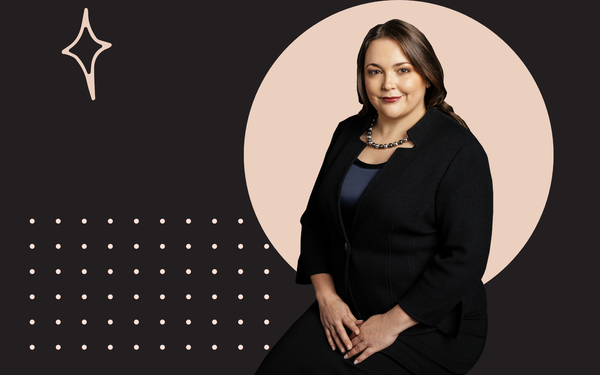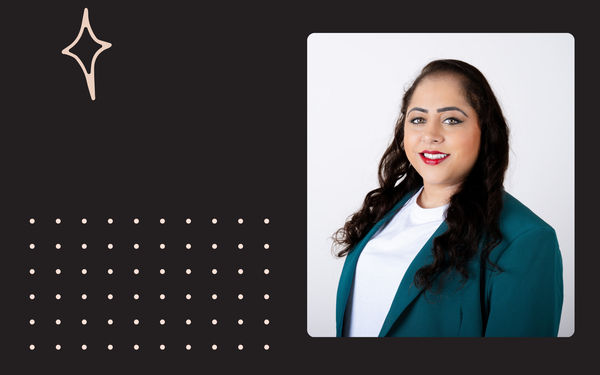Beyond the Bottom Line: How Empathetic Leadership Drives Real Business Results

In a corporate landscape where 67% of Australia's workforce has quietly disengaged, one leadership expert is challenging the age-old belief that empathy and profit are mutually exclusive. Meet Leanne Butterworth, founder of Empathy First and creator of the transformative WISER framework—a proven approach that's helping leaders across Australia discover that genuine care for their people isn't just morally right, it's strategically smart.
As both a TEDx speaker and university lecturer, Leanne has positioned herself as an "Empathy Realist," advocating for what she calls "healthy empathy"—a practice that goes far beyond simply "being nice" to create measurable business outcomes. Her work challenges the traditional profit-at-all-costs mentality, demonstrating instead how empathetic leadership enhances what she terms the ART of business: the ability to Attract, Retain, and help teams Thrive.
From her base on Australia's wellness scene, Leanne has been quietly revolutionizing how leaders think about human connection in the workplace. Her approach isn't about emotional overwhelm or abandoning accountability—it's about creating psychological safety that unlocks peak performance. Through her signature WISER framework, she teaches leaders to make their teams feel "heard, valued, and visible" while maintaining crucial boundaries that prevent burnout.
In this exclusive interview, Leanne shares her insights on why empathy has become a business imperative, how to distinguish between healthy empathy and emotional overwhelm, and what unique challenges women leaders face when implementing empathetic leadership styles in environments that still mistake compassion for weakness.
You've positioned yourself as an "Empathy Realist" and argue that empathetic leadership isn't just nice-to-have but a business imperative. With 67% of Australia's workforce reportedly quiet quitting, how do you help skeptical leaders move beyond the traditional "profit-at-all-costs" mindset to embrace empathy as a genuine competitive advantage, especially when they may view it as a sign of weakness?
There is a lot of misunderstanding about empathy. Many assume it’s ‘just being nice’ or ‘feeling all the feelings’ which might seem to put it at odds with ‘profit-at-all-costs’. But this traditional thinking often results in micromanagement, burnout and stress which actually reduce productivity and profitability. Healthy empathy is “the ability to, or the genuine attempt to, share and understand the feelings and perspectives of your people and respond in a way that makes them feel heard, valued, visible and safe.” When leaders do this well, people don’t just comply through fear, they engage through trust and belonging.
In fact, empathetic leadership has been shown to enhance work engagement which then improves wellbeing and performance because people feel like they matter. When understood and practiced with self-awareness and consideration, healthy empathy strengthens what I call the ART of leadership – businesses enhance their ability to Attract, Retain and Thrive.
Empathy isn't the opposite of profit — it's the path to it.
Your signature WISER framework teaches people to make others feel "heard, valued and visible" while maintaining personal boundaries to prevent burnout. Can you walk us through what healthy empathy looks like in practice? How do you help leaders and teams distinguish between compassionate empathy that energizes versus emotional overwhelm that depletes?
One of the biggest misperceptions about empathy is that it means feeling all the feelings of everyone all the time. Understandably, that sounds overwhelming — and it is. That kind of unfiltered emotional absorption often leads to burnout and doesn’t serve the other person either. I teach that empathy has three forms, however, not all empathy is healthy empathy.
Emotional empathy is also known as emotional contagion — we “catch” others’ feelings, but without good boundaries, we can become emotionally drained. That’s why healthy empathy requires us to develop emotional regulation, self-empathy, boundaries, and emotional literacy — so we can stay present without losing ourselves.
Cognitive empathy is about perspective-taking, but if we don’t question our assumptions, we risk projecting our own values, experiences, privilege and judgements onto the other person instead of truly listening. Healthy cognitive empathy requires us to challenge our first impressions and get curious.
Compassionate empathy is the goal — it’s about creating a safe, non-judgmental space where the other person feels heard, valued, and not alone. That means turning off distractions, asking thoughtful questions, acknowledging emotions, and building trust. It’s not about fixing, advising, or emotionally spiralling with them but holding space with intention and self-awareness.
As both a TEDx speaker and university lecturer who's contributed to "Women Making a Difference," you're clearly passionate about systemic change. What's been your most rewarding moment seeing empathy training actually transform a workplace culture? And for women leaders specifically, what unique challenges do they face in implementing empathetic leadership styles, and how can they navigate these while still being taken seriously?
Belinda was a leader in a large Not-For-Profit organisation whose team was becoming fractured, stressed, and disengaged. She cared deeply about her people and mission but felt torn — caught between pressure to deliver the numbers and her own belief that human-centred leadership was the right path.
Through our sessions, she learned to challenge her assumptions and insecurities, to lead with healthy empathy without losing sight of accountability. She said, “Understanding healthy empathy allowed me to unlock another side of myself at work. I’ve learned that I can still have boundaries without being reactive, and still show empathy to others.” That shift not only reduced stress for her and her team, but it also improved outcomes for the business and their clients.
This is a common challenge, especially for women leaders. There’s a persistent myth that empathy is “soft,” or that it undermines authority. Practicing healthy empathy strengthens leadership. It allows you to hold people accountable while showing that they matter.
The key is knowing that empathy and performance are not at odds. You can care deeply for your team and deliver results. In fact, when you do, people thrive and so does the bottom line.
Follow Leanne on socials:
Instagram: https://www.instagram.com/empathyfirsthq/
LinkedIn: https://au.linkedin.com/in/leannebutterworth
Are you a woman leader with an inspiring journey to tell? Founded by Women is on a mission to elevate and amplify the voices of women making an impact.
If you're breaking barriers, driving change, or paving the way for others, we’d love to feature your story. Get in touch with us today!
👉 Contact Us


